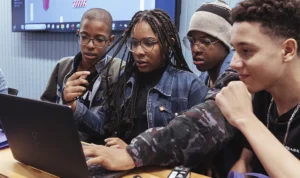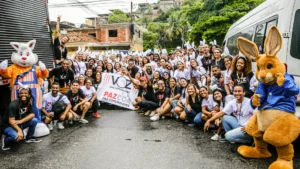The most recent figures show that 19.1 million people are going hungry in Brazil — a population that almost reaches that of the state of Minas Gerais, the fourth largest in the country. And more than half (55%) of Brazilians are in a situation of food insecurity, from the mildest, which is the fear of going hungry in the near future, to the severe, when there is no food on the table.
These data, recorded in a survey carried out by Rede Penssan (Brazilian Research Network on Food and Nutrition Sovereignty and Security) in December 2020, revealed the worst food security index in the country since 2004. In that year, 35% of the population lived with food insecurity.
The seriousness of the issue of hunger in Brazil shows us how urgent it is to act towards one of the most important Sustainable Development Goals, the global goals of the UN (United Nations) to eliminate poverty and protect the environment.
According to the UN, ending hunger and promoting food security is one of the goals that all countries must achieve by 2030, as well as improving people's nutrition and promoting sustainable agriculture.
Getting there is the responsibility not only of governments, but of society as a whole, including companies. Only with a structured and collaborative response will we be able to change this situation for the better.
In 2021, iFood joined forces with the NGO Ação da Cidadania, the social impact startup Connecting Food, retailers and large companies (such as Nestlé, Carrefour and M. Dias Branco) to redistribute surplus food to people who need it most, in the movement Everyone at the Table. This way, we also combat food waste.
With this, our expectation is to redistribute 1,500 tons of food across the country by March 2022. I believe that companies have an important role to play in combat to hunger and can use their means to connect those who can donate to those who need food most.
During the year we also made improvements to the application to make donating easier. Now, anyone who wants to contribute to the cause of fighting hunger can make a donation at order checkout. This is a way to encourage a culture of giving and act quickly at a time when inequality and hunger are on the rise.
Another important goal of the Sustainable Development Goal to combat hunger is to double agricultural productivity. And then technology plays an important role, as we are demonstrating in urban garden that we have at our headquarters, in Osasco (SP).
In this urban garden, which is located on the seventh floor of our building, food is grown in the middle of the city, in a climate-controlled greenhouse that reduces water consumption by 90% and increases productivity — all without using pesticides.
The production, which is around 1.7 tons per month, is donated to the Osasco Food Bank, providing quality food to those who need it most and impacting more than 3,000 families in the region.
In addition, iFood also finances urban gardens in three public schools in the metropolitan region. In this initiative, all food is used to feed school students.
This shows us that, even in the face of such an alarming situation regarding hunger and food insecurity, there are opportunities to innovate in the fight against these problems. With creativity, unity and technology, we can now foster a better future for all Brazilians.


